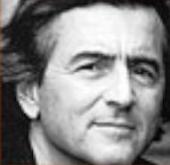When war breaks out, French philosopher Bernard-Henri Lévy is decidedly in his element. "BHL," as he is known in France, made a first venture into his peculiar brand of literary war reporting as the self-appointed bard of the Bosniak cause during the Bosnian civil war in the early 1990s. This was then followed -- in sometimes dizzyingly short order -- by quick jaunts into war zones or areas of civil unrest in Algeria, Afghanistan (to visit Massoud), Sri Lanka, Burundi, Colombia, Southern Sudan and Israel (during the Israel-Hezbollah War of 2006), and even a brief foray into Darfur last year. Thus, when war broke out between Russia and Georgia over South Ossetia last month, BHL packed his bags and set off to Tbilisi. (Cited in the Independent, a fellow guest at the Tbilisi Marriot describes spotting BHL and his entourage "loafing around in the foyer puffing clouds of smoke, and gesticulating meaningfully.") The Georgian capital was not, however, BHL's ultimate destination. BHL had his sights set rather on the city of Gori, which was clearly penciled in to play roughly the role of Sarajevo in his version of the South Ossetia War: what the philosopher likes to call a "martyred city." Gori had been the target of Russian aerial attacks and, following the withdrawal of the bulk of Georgian combat forces on Aug. 11, it was rumored to have been ravaged by marauding bands of Russian-affiliated paramilitaries. Lévy's published account of his voyage appeared in Le Monde on Aug. 19 and then one day later in English on the American Web site the Huffington Post. It bears the title "Georgia at War: What I Saw": or "Choses vues dans la Géorgie en guerre" in the French original. Lévy describes traveling to Gori on what would have been Aug. 13 -- the author does not himself provide date or time. He had hitched a ride with Georgian official Alexander Lomaia and Estonian Ambassador Toomas Lukk. Washington Post reporter Tara Bahrampour and European parliament envoy Marie-Anne Isler-Béguin also formed part of the group. Upon arriving in Gori, Lévy reports seeing a city on fire. Gori is "a Georgian town," Lévy writes, "And [the Russians] have burned it down, pillaged it, reduced it to a ghost town." The full passage (in the translation of the Huffington Post) reads as follows:
Reporting the Georgian War: Is Bernard-Henri Lévy a Fabulist?

